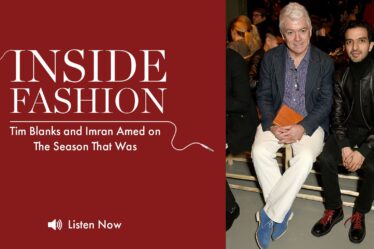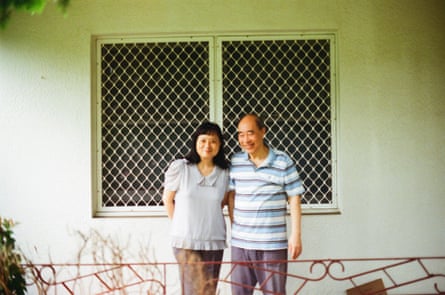
I haven’t lived under the same roof as my parents since I was 22. But in the winter of 2021 I moved to Glasgow and, for the first time in my life, woke up each day to roughly seven seas and an ocean between us.
Back home in Sydney, like most Asian parents, Mum and Dad open most conversations with: “你食咗飯未呀?” Have you eaten? It doesn’t matter what time of day it is – or which meal, specifically. But since I moved to Scotland they’ve dropped the ice-breakers and started simply sending me screenshots of random Cantonese dishes.
“This is Candice,” I wrote back the first time, assuming they had texted the wrong daughter.
“Candice, this is Crazy Wok,” Dad replied.
Like Homer’s Iliad and Odyssey, my parents’ sprawling anecdotes often begin in medias res. They privilege narrative urgency over context. Several messages in, I realised Dad had been looking up Cantonese restaurants in my neighbourhood and found one not far from my apartment: Crazy Wok. Soon, Mum’s congee recipe and Google Map directions to local Chinese groceries followed. In a deadly pandemic, what kept my parents up at night was the terror that I might not get enough Asian food to eat.
I moved to Glasgow because of a geographer. We met the old-fashioned way – on a dating app – at the end of 2019. Our first date happened to be the day after my parents’ 40th wedding anniversary. We’d laughed at their ultramarathon of a relationship. Clearly, we were different. We had the internet. Both of us had just watched Noah Baumbach’s Marriage Story. That we liked each other more than we expected was beside the point.
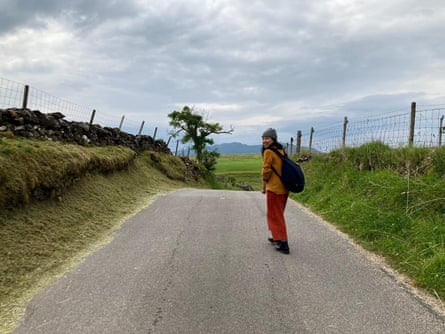
Plus, he was from Canada and moved every few years for work. The pandemic struck soon after we’d met and I didn’t expect to keep seeing him. I didn’t expect my Cantonese parents to instantly bond with him, either. But having moved so much themselves, they saw he understood what it was like to live as an outsider, to yearn for home, to feel rootless. I didn’t expect to fall in love.
I also didn’t expect he would be offered a job in Glasgow a year into our relationship. The news felt like a rude shock. I assumed we would break up, he asked if I’d move with him.
Sometimes you find yourself in the middle of a story. When I broke the news to my parents, they both went quiet. It was a dry summer’s afternoon, Dad kept watering his orange tree. After a time, he said: “If you don’t like it, you can always come home.”
In the autumn of 2021, the geographer and I married. By June we were headed for Glasgow. That was our first overseas trip together.
Before moving, everything I knew about Glasgow came from the songs of Belle and Sebastian. In our first week in the city I was excited to see the River Clyde in real life. But we found there was little life near the water. Unlike other European cities, where cafes and parklands spring up by riverbanks, the Clyde is flanked by stark, industrial buildings. Most of the waterfront areas are neglected, in disrepair – thanks to a history of “managed decline” in the 70s and 80s.
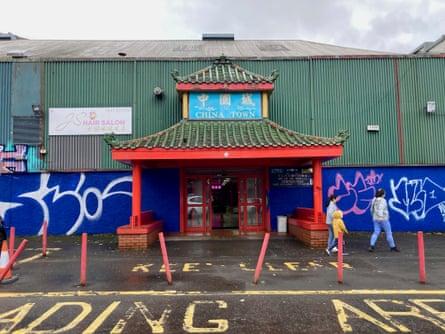
Soon, we ran into other surprises. In Glasgow, there is no Chinatown – at least not in the way we knew it. Instead there’s a restaurant named China Town with several neighbouring stores in a shopping complex. Glasgow may be the most diverse city in Scotland but 88.3% of the population are Anglo-Saxon. My parents’ food worries were not entirely unfounded.
Migration can feel like perpetual jet lag. In the early days I found myself having flashbacks to my teenage years, after we’d moved from Hong Kong to Australia. Once again, I was unable to decipher everyday exchanges. I blanked when someone invited me to “sut doon”. I couldn’t tell whether to run or smile when an elderly pet owner talked about his “wee dug”. It was both a shock and a validating reminder that even English-to-English translations can be difficult. Suddenly, I was an old-school migrant again – walking in the same shoes my parents had by leaving the life they knew.
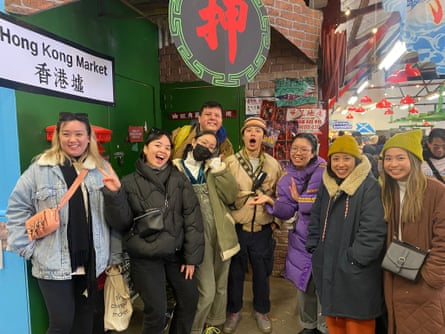
Several months into our move I met Sean, a British-Cantonese poet and performer, who had been living in Glasgow for seven years. The first time we met, he took me out to eat. He’d just written a poetry collection called Sikfan Glaschu – a tribute to the migrant life told through Glaswegian restaurants. He soon became my first friend in the city.
Then there was Karlie, whose restaurateur parents seem to know every Cantonese family here; Taylor who runs a chat thread that keeps us posted on the best Asian eateries and the local art scene; and Eddie, a Korean-American poet –who supplies the town with his homemade kimchi. Away from our families we’ve made our own village. I think back to my parents’ friends – intimacies forged by chance and need, bonding with each other through the sheer gravitational pull of kinship.
It is now my third winter in Glasgow. When you buy something here, rather than saying “cheers” or “here you go”, shopkeepers bid farewell by saying: “That’s you.” It is one of my favourite phrases. In this city, at the end of an exchange, we are returned to ourselves. Still oceans apart from the people and places that shaped us, perhaps – but whole.
-
Candice Chung is a Glasgow-based writer and editor. Her first book, Chinese Parents Don’t Say I Love You, is being published by Allen & Unwin


